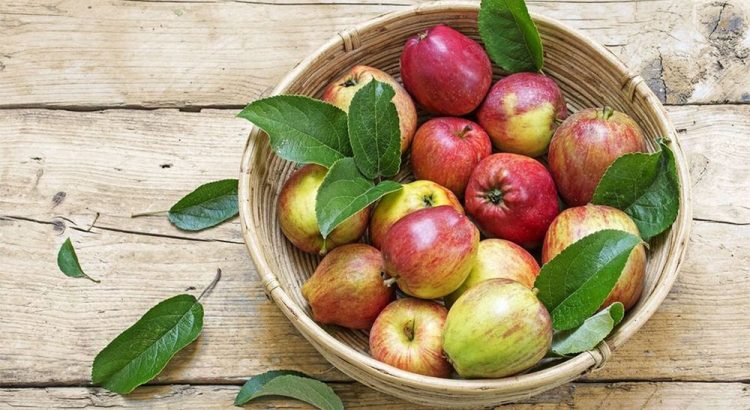Bilirubin is a yellow pigment that is formed as a result of the breakdown of red blood cells in the liver. If its level in the blood increases, it may indicate problems with the liver or bile ducts, as well as other diseases. It is important to know which foods and fruits lower bilirubin to help the body lower its levels naturally.
Which fruits lower bilirubin?
A diet with an elevated level of bilirubin should include foods that support liver health, improve bile secretion, and normalize metabolism. Fruits are an important part of such a diet, as they are rich in vitamins, antioxidants and fiber, which have a positive effect on detoxification processes in the body.
- Apples
Apples contain pectin, a type of fiber that promotes detoxification and improves liver function. They help reduce the level of bilirubin and cleanse the body of toxins.
- Grapefruit
These fruits are an excellent source of vitamin C and antioxidants that help normalize liver function and lower bilirubin levels. Grapefruit also contains flavonoids that improve the functioning of the gallbladder.
- Citrus
Oranges, lemons and tangerines are rich in vitamin C, which helps reduce the burden on the liver and improves the metabolism of bilirubin. Citrus fruits also have anti-inflammatory properties.
- Pears
Pears are another useful fruit for people with high bilirubin levels, as they have the ability to lower cholesterol and toxins in the body, which has a positive effect on bilirubin levels.
- Bananas
Bananas are soft, easy-to-digest fruits that help restore normal levels of bilirubin in the blood thanks to their antiseptic properties.
- Cherry and cherry
These fruits have a high content of antioxidants and help cleanse the liver, which contributes to the normalization of bilirubin levels. They also have anti-inflammatory properties.
Bilirubin-lowering foods
Not only fruits help to reduce the level of bilirubin, but also other products that have the ability to improve the function of the liver and biliary tract.
- Vegetables with a high fiber content – broccoli, spinach, carrots and beetroot – have powerful cleansing properties and help normalize the level of bilirubin in the body.
- Foods rich in antioxidants – blueberries, pomegranates, tomatoes and other foods also help fight elevated bilirubin levels by supporting liver function.
- Greens – spicy herbs, such as parsley, dill and basil, have choleretic properties that help cleanse the liver and lower bilirubin levels.
- Marine fish – omega-3 fatty acids found in fish help reduce inflammation and support normal liver function, which is important for normalizing bilirubin levels.
What should not be eaten with hyperbilirubinemia?
There are a number of products that, with a high level of bilirubin, can worsen the condition of the body and contribute to a further increase in the level of bilirubin in the blood. Here is a list of such products:
- Fatty meat and sausages
Foods with a high content of saturated fats, such as sausages, smoked meats, fatty pork or beef, put a strain on the liver, making it difficult for it to work.
- Alcohol
Alcohol is one of the main factors that increases the level of bilirubin and impairs liver function.
- Trans fats
Trans fats, which are found in many baked goods, chips, margarine and fast food, are harmful to the liver.
- Foods with a high sugar content
Foods that contain a lot of sugar can increase body fat levels, which can also contribute to increased bilirubin levels.
- Fast food
Fast food, which is often high in fat and low in nutrients, can damage the liver and increase bilirubin levels.
Here is an example of a healthy menu for one day with an elevated bilirubin level:
Breakfast
- Oatmeal with bananas and nuts
- Tea with lemon
Snack
- Apple
Lunch
- Vegetable soup with broccoli and carrots
- Buckwheat with chicken fillet baked with greens
Afternoon
- Pears or cherries
Dinner
- Stewed vegetables (eggplant, tomatoes, pepper) with fish
- Salad with cucumbers and spinach
Before bed
- Light yogurt without sugar
Decreasing the level of bilirubin is an important task for maintaining liver health and normalizing metabolism. Including bilirubin-lowering fruits, as well as foods rich in fiber and antioxidants, will help the body restore balance and improve overall health. Remember that proper nutrition is the basis of health, so always pay attention to your diet, especially with elevated bilirubin levels.




